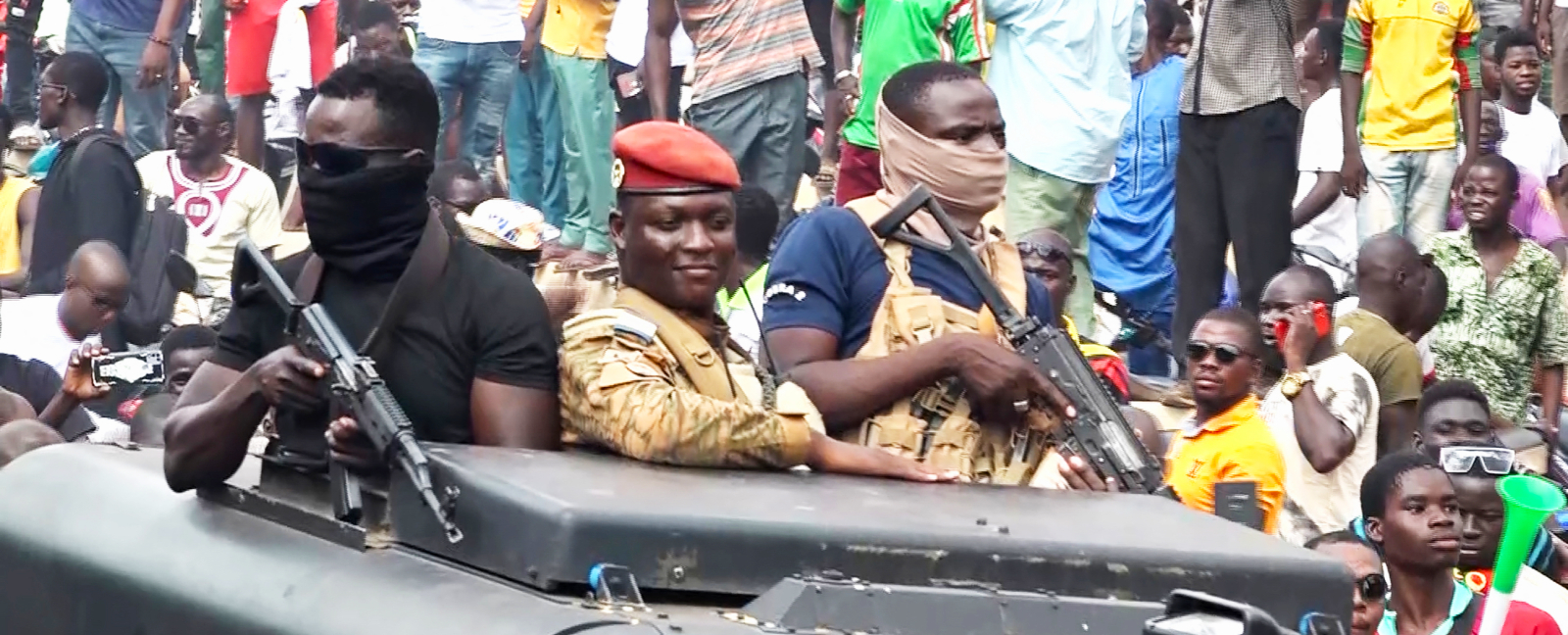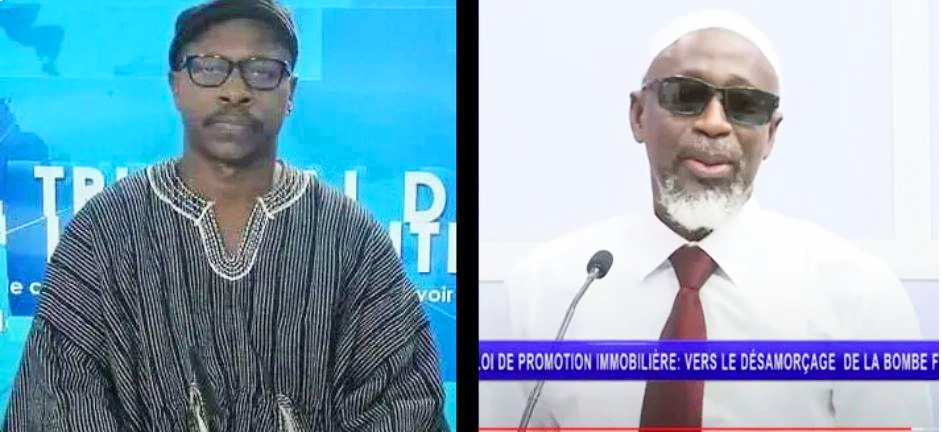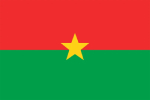Elections intended to restore a democratic civilian government in Burkina Faso in July 2024 were deemed “not a priority” and indefinitely postponed by the military junta led by Captain Ibrahim Traoré in September 2023.
The democratically elected government of President Roch Kaboré was overthrown in January 2022 by a junta led by Colonel Paul-Henri Damiba. In July 2022, the junta agreed to a 24-month transition timetable with the Economic Community of West African States (ECOWAS). Then, in September of that year, the 35-year-old Traoré ousted Damiba and superseded the constitution with a charter giving himself unilateral powers. Despite agreeing to keep the previously negotiated transition timetable, Traoré’s refusal to proceed with the July 2024 transition suggests his intention to retain his hold on power indefinitely.
The extraconstitutional seizures of power undermined Burkina Faso’s nascent and hard-earned democratically oriented political process, which had overcome the 27-year rule of Blaise Compaoré (who had himself come to power in a coup) after mass protests in 2014. Kaboré’s subsequent election in 2015 was by far the most competitive Burkina Faso has ever held, ushering in a series of reforms. Among these were gains in building a culture of military professionalism and adopting a comprehensive National Security Strategy.

The self-proclaimed leader of the military junta ruling Burkina Faso, Captain Ibrahim Traoré, parades in the streets of Ouagadougou. (Photo: AFPTV)
The political instability wrought by military interventions has a long legacy in Burkina Faso with the military having held power directly or indirectly during 51 of the country’s 64 years of independence—making the 2014-2022 democratic opening and its reversal all the more significant.
The junta’s unilateral indefinite postponement of the 2024 election is consistent with the ad-hoc nature of Traoré’s rule in Burkina Faso. Laws are arbitrarily applied and decisions taken at the whim of the junta leader.

Journalists Yacouba Ladji Bama (left) and Issaka Lingani were conscripted in early November by Burkina Faso’s military junta. (Photos: Yacouba Ladji Bama and YouTube/Presse Echoes)
This includes the “voluntary” mobilization of 50,000 volunteer protection forces. This mobilization, authorized under Traoré’s emergency decree, has been increasingly used as a means of forced conscription, targeting journalists, civilian political party members, and civil society critics of the junta. This includes Daouda Diallo, a 2022 recipient of the prestigious Martin Ennals international human rights award, who was abducted in late 2023 in Ouagadougou. His name was later included on lists of the conscripted.
The Burkinabe Movement of Human and Peoples’ Rights (le Mouvement burkinabè des droits de l’homme et des peuples, MBDHP) said the general mobilization has been specifically designed and adopted not to contribute to the fight against terrorism, but to repress critical opinions.
These punitive actions are part of a broader campaign to crack down against the media and peaceful dissent in order maintain the appearance of popular support for the junta. Media outlets that report on the deteriorating security situation in the country, human rights abuses, or dissent within the military are suspended. This has been accompanied by roaming bands of youth militias organized by the junta to physically intimidate any signs of citizen dissonance. The effect has been to dramatically constrain what had become one of the most open media environments in West Africa.
Despite this intimidation, resistance by opposition political parties and Burkina Faso’s historically robust civil society persists. At least 15 civil society groups and trade unions collectively denounced the postponement of the elections, though protests have been barred. While space for dissent is limited, there is a growing realization within Burkina Faso that the junta has no intention of relinquishing power, and, what was perceived as a transitory process, is set to endure indefinitely under the current trajectory.
Despite the junta’s intimidation, resistance by opposition political parties and Burkina Faso’s historically robust civil society persists.
Further illustration of the junta’s lack of accountability is the spike in human rights abuses linked to the military. Much of this is targeting communities perceived as supportive of the militant Islamist insurgency that spilled over from Mali and has been spreading across Burkina Faso. This includes an incident in the village of Karma in April 2023 when 156 villagers, including women and children, were reportedly massacred by the military.
Security has dramatically worsened in Burkina Faso since the coups. There are double the number of violent events involving militant Islamists since 2022 and triple the number of fatalities (with an estimated 5,000 people killed in Burkina Faso in 2023). The instability has triggered the displacement of more than 2.1 million Burkinabe (around 10 percent of the population). The traumatic effect of this violence on the psyche of the Burkinabe population is particularly shocking given that Burkina Faso had largely avoided any significant organized violence since independence.
The militant Islamist groups (Ansaroul Islam and Islamic State in the Greater Sahara) responsible for much of this violence have laid siege to at least 36 Burkinabe towns and control more than half the country, moving inexorably toward Ouagadougou. The militant Islamist violence has also intensified along the southern borders of Burkina Faso with the coastal West African countries of Benin and Togo.
In the face of this escalating security threat, Burkina Faso’s military junta has incongruently dissolved security partnerships within the region (including with the G-5 Sahel and ECOWAS) and internationally.
The Traoré junta’s postponement of a transition to a civilian government has profound national and regional security implications. Domestically, it delays reestablishing a legitimate authority that can mobilize a credible, sustained whole-of-society effort needed to defeat the militant groups. A democratic government would also be in a stronger position to marshal the political, financial, and security support from ECOWAS and international partners that will be needed to defeat an insurgency that has now grown past the capacity of Burkina Faso’s armed forces to confront on its own—even with the several hundred Russian forces the junta has retained. Postponing the transition, moreover, risks the further escalation of violence in Burkina Faso, directly jeopardizing security for its southern neighbors Benin, Togo, Côte d’Ivoire, and Ghana.


 Burkina Faso: July
Burkina Faso: July